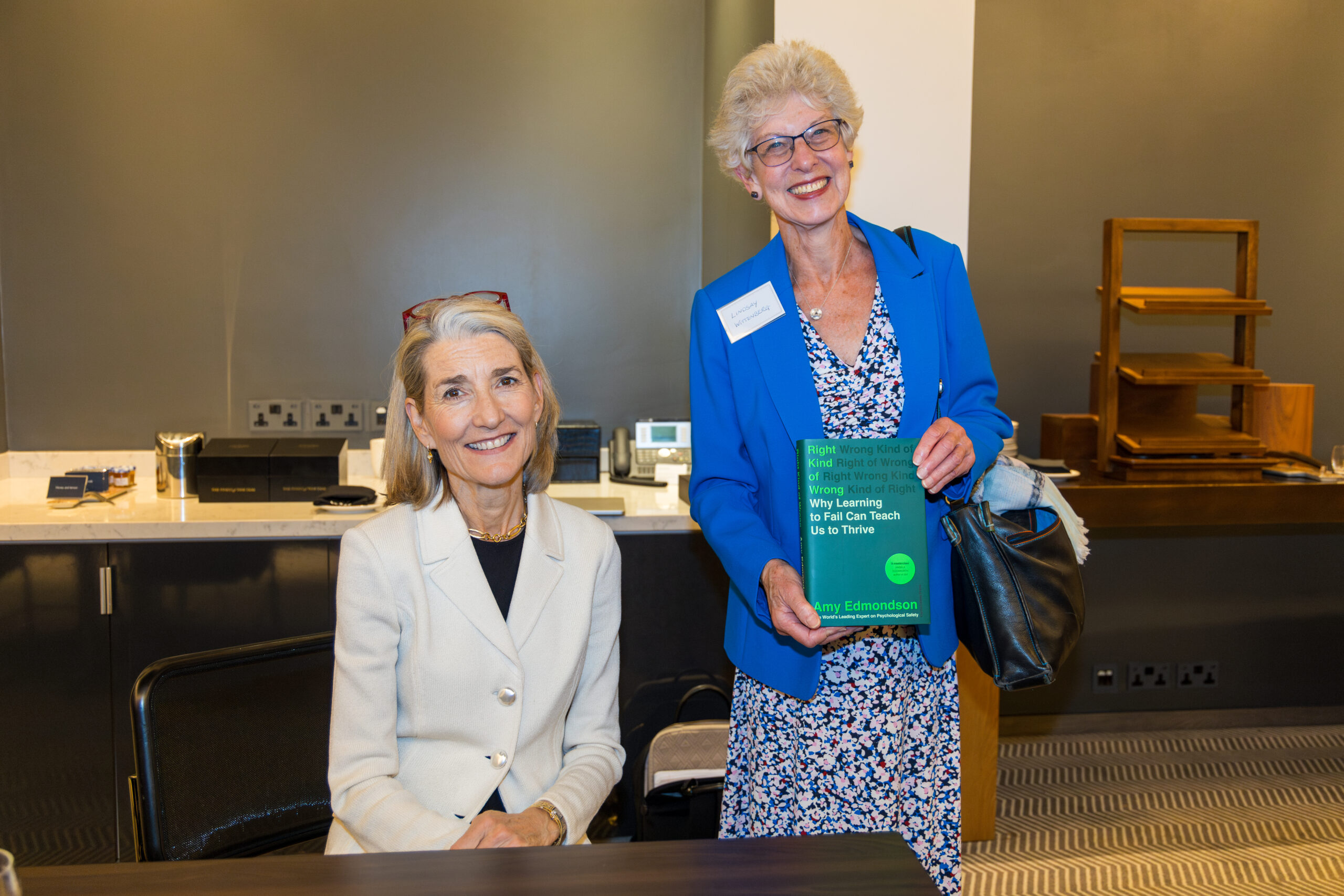blog: news and opinion
Time as gift or tyranny?
29th November 2023The author of ‘Time Shelter’, Georgi Gospodinov, treats time as a gift to the sufferer of memory loss, rather than the enemy it so often seems to be as a factor in our working lives. This perception of time as something we can have power over contrasts strikingly with the relationship that many leaders and managers – and indeed organisational cultures – seem to have with it: a perception that treats time almost as a ‘thing’, and that sees us as victims of it. Our relationship with time enshrines an intimate connection with achievement. In turn, achievement is connected to a sense of self-worth. We can feel like we are at the mercy of time, in contrast to a sense of emergence, but there is a richness in the emergence, enabling the capacity to perceive, accommodate and integrate a broader perspective. This is important for the task of leadership: to step back and see more interdependencies and more viewpoints.
Read more »Responsibility - and hedgehogs
31st October 2023Imbalance in the way responsibility is used (and not used) in systems of all sorts, including organisations, is large-scale and widespread. Too much responsibility may be assumed (albeit unconsciously). This shows up with leaders who work hard to make sure that everything that needs doing is done, typically to a high standard, no matter whose responsibility it actually is. Inappropriate responsibility may be imposed in childhood, and taken on into work, via an expectation from one or other parent. When leaders fail to take on responsibility that is theirs, it may be that they feel inadequate to the task or may fear failing, and may persuade themselves that by not acting they don’t risk failure. Like the hedgehog who freezes in the middle of the road, they are likely to incur failure rather than avoid it. One of the classic situations in which appropriate responsibility is not given is represented by the micromanaging boss. In all these scenarios, both the team and the leader are weakened and become brittle: they lack resilience and the capacity to learn, develop and change as much as they could, and/or as much as they need to.
Read more »The Right Kind of Wrong
30th October 2023Amy Edmondson's new book 'Right Kind of Wrong: Why Learning to Fail Can Teach Us to Thrive' explains how we get failure (a potentially invaluable learning opportunity) wrong, and how to get it right, highlighting that the most successful organisational cultures are those in which you can fail openly, without your mistakes being held against you. We're living in turbulent times, and, as Amy Edmondson points out, failure is both more likely than ever – but if it’s the right kind of failure, it’s also more valuable than ever. While most failures in organisations are treated as blameworthy – and there are failures we should definitely work hard to prevent – there are others we should welcome. The latter are the intelligent failures.
Read more »David Hockney, painting, and coaching
28th September 2023I recently had the opportunity to visit the stunning David Hockney exhibition in London (‘David Hockney: Bigger & Closer (not smaller & further away)’. It prompted reflection for me both on what it offers to my conceptualisation of coaching and what I can learn that might enhance my clients’ experience of coaching with me. I found the exhibition nourishing, exciting, inspiring, refreshing, perspective-opening and deeply calming. It stimulated my thinking on how I might raise my awareness and challenge myself to look in more depth, and call on more perspectives and insights, with clients. Is there any sense in which I currently satisfy myself with looking partially, on a relatively small scale, or only in one perspective? Besides widening our perspective, the artist also highlights the rewards of looking in every direction at the same time, all the time. He characterises water as illusive, because all the patterns you see are on the surface. If, as coach, I take those patterns as the only patterns, then I’m only seeing part of the person I’m working with, and only some of the influences they’re subject to.
Read more »Who do you think you are?
31st August 2023I often hear leaders characterising themselves and their styles by reference to a set of behaviours, or a set of beliefs or values, or a combination of behaviours and beliefs. It's in this territory that the idealised self resides. The idealised self is the subject of quest, but probably not what is here now. And yet what is (and who is) now is, in a sense, the most powerful self we can be. However, I don’t often hear leaders describe their style by reference to their sense of who they are when they are truly present to themselves. Leaders I work with who discover and accept who they are tell me that the self- and system-awareness that is part of the discovery give them a palpable sense of acceptance, self-acceptance, peace and freedom. And from that emerge sustainable awareness of perspective, clear-sightedness about the ‘what’ and the ‘how’, compelling and engaging leadership, and capacity to relate healthily, learn and develop self, others and the organisation.
Read more »Where am I going? Achievement, development and transformation
31st July 2023Objective-orientated - directional - coaching will be appropriate for certain clients with certain types of coaching need. However, such coaching isn’t developmental coaching, or indeed transformational coaching. Development and transformation tend to be emergent: just because a client doesn’t appear to be going somewhere doesn’t mean nothing is happening. On the contrary, a great deal might be happening. A lack of structure in the emergence shouldn’t be confused with a lack of something valuable. There’s another aspect too to this kind of emergent coaching: not just acceptance, but radical acceptance. This, in turn, relates both to radical inclusion and to ‘weak signals’. All are important underpinnings of outstanding leadership.
Read more »Managing relationships: a somatic-relational lens
30th June 2023I’ve been working with a number of clients challenged by managing upwards or managing relationships with peers. In a variety of ways, I invited these clients to become aware of the bodily sensations and impulses towards movement that their individual experiences evoked for them. We worked together on the meaning of those sensations and impulses for them, and we worked at depth on any links with the various facets of how their ‘problematic’ relationships showed up in practice, with compassion and with a focus on the potential that new types of connection offered. Old messages and out-of-date interpretations came to the fore. Across these clients’ experiences there emerged an acceptance of ‘what is’, and an acceptance of ‘the other’ as they were rather than trying to fight it or resist it. They became more perceptive about the impact of ‘the other’ on them and theirs on ‘the other’. They felt more settled, safer, more trusting of themselves. They enacted more of their own true capability with a sense of greater space and freedom. Something important was released for them.
Read more »Presence and positivity
31st May 2023Positivity of thinking, behaviour, communication, leadership, and the way we relate to each other as human beings brings benefits. And yet, positivity without a foundation of reality and connection with one’s audience isn’t useful at all, and can indeed be damaging. If I share a dilemma or a problem with another person, I feel unacknowledged, unheard and let down if their response is simply to invite me to look on the bright side, to look for the pluses, or to look for the solution – or even to give me what they think is the solution. Any positivity I might experience is then short-lived and insubstantial. I need the other person’s presence. I need to be seen, and then I can feel a connection. Without that connection the other person’s positivity is too superficial to make any kind of difference for me – and at worst can actually betray my trust. I also need the other person to be attuned with me – to be paying attention to my inner experience.
Read more »Mirror, mirror
28th April 2023Following his arrival in a new role, a leader had been struggling with what he experienced as his line manager’s micromanagement and feeling like he had no voice. His line manager seemed to constantly present himself as being right, inviting no other views. The leader felt stifled and unheard. He felt isolated, and was beginning to get so disillusioned and distressed that he was wondering if the job was right for him. Things started to shift when he started to give attention in the coaching process to compassion for his line manager and the benefit of bringing more humility to the relationship. In a lightbulb moment he was shocked to realise that he, too, was behaving somewhat like his line manager in his interactions with his own team. His first step was to become more insightful and aware in the present moment. When we detach, we can more easily become aware of what might be reflected back to us from both others’ behaviour and our own. Might there be anything to learn from what we see in the mirror?
Read more »Power and place – and invisible women
31st March 2023She was a senior manager in a male-dominated environment. Did she really need power in order to establish and maintain her position? Did she have power by virtue of her position, and if so, only because of her position? How did her power show up and how did she think it showed up? How can women reclaim their power in a balanced, proportionate, appropriate way when they feel it’s been misplaced between the genders? Factors that help include leaders who have humility, sensitivity and perceptiveness, and contexts of real psychological safety and openness to learning. This might well be the stuff of development once leaders have realised the central role of psychological safety in effectiveness, collaboration, teamwork, innovation and improvement. importantly, it’s worth remembering that power isn’t simply external, something that goes on between oneself and others. It’s also internal: a sense of power that we create inside ourselves, a message to ourselves about our place in the world and about our agency over our own lives, behaviours, and patterns of thinking and acting.
Read more »









